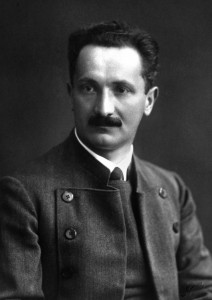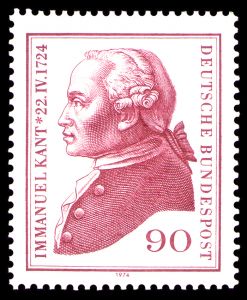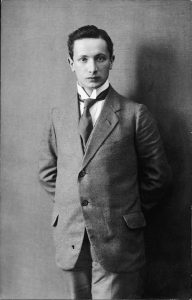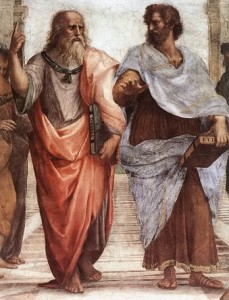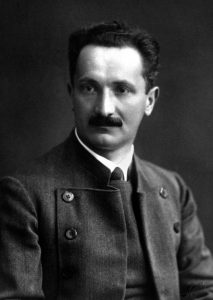Tag: knowing
-

The only genuine traditional form of society: one ruled by a nobility that is guided by a priesthood.
3,770 words
The following is the text of a talk that was given at the recent Counter-Currents Spring Retreat. The video can be seen here, or below.
Cyan asked me to speak on this topic, and before I begin, I just want to clarify something, because when it comes to these matters I’m overly pedantic. But historically speaking, ethnonationalism and religion don’t go together. This is because the nation-state itself, which was born out of either the French Revolution or the Second English Civil War, depending on who you ask, has always been secular and opposed to any mixing of politics and religion. (more…)
-
October 15, 2021 Collin Cleary
Χάιντεγγερ εναντίον Παραδοσιοκρατών
6,994 words
English original here
Μετάφραση: Λόενγκριν
1. Εισαγωγή
Οι ανήκοντες στη Νέα Δεξιά συνδέονται εν μέρει μέσω κοινών πνευματικών ενδιαφερόντων. Στον κατάλογό μου αυτών των ενδιαφερόντων θα κατέτασσα σε υψηλή θέση τα έργα του Μάρτιν Χάιντεγγερ και εκείνα της Παραδοσιοκρατικής [1] [2] σχολής , ειδικά του Ρενέ Γκενόν και του Ιουλίου Έβολα. Η δική μου δουλειά επηρεάστηκε σε μεγάλο βαθμό τόσο από τον Χάιντεγγερ όσο και από την Παραδοσιοκρατία. (more…)
-
6,864 words
All essays in this series available here
1. Introduction
My two previous essays introduced readers to Kant’s transcendental idealism and discussed the similarities and differences between Kant’s critique of metaphysics and Heidegger’s. It is now time to begin to consider Heidegger’s critique of Kant, and how Heidegger locates him within his history of metaphysics. (more…)
-
5,568 words
Part 1 here, Part 2 here, Part 3 here, Part 4 here, Part 5 here, Part 6 here
1. Introduction
In the previous essay in this series, we saw Heidegger claiming that Leibniz “prepares” the completion of the metaphysical tradition, but that it is Nietzsche who actually brings it about. I will devote a future essay to Heidegger’s interpretation of Nietzsche, but we may note here that the completion of metaphysics would have been impossible without Kant, who answers Leibniz and inadvertently prepares the way for Nietzsche. (more…)
-
6,518 words
1. To Be Is to Be “Set Before”
In the previous installment of this series, we saw Heidegger contrasting modernity to the Middle Ages in the following terms:
For the Middle Ages . . . the being is the ens creatum, that which is created by the personal creator-God, who is considered to be the highest cause. (more…)
-
Introduction
In the previous essay (“Heidegger’s History of Metaphysics, Part One: Platonism”) I began to sketch Heidegger’s argument for the claim that Western metaphysics lays the groundwork for the nihilism and decadence of modernity. I framed this account partly as a critique of the Traditionalists Julius Evola and René Guénon, who aimed to combat modernity with a “Traditionalism” grounded in Western metaphysics (more…)
-
7,589 words
George Ivanovich Gurdjieff was born on this day in 1866, 1872, or 1877 — depending on whom you ask. [1] Much else about his biography is equally uncertain. We do know that his father was Greek, his mother Armenian, and that he was born in Alexandropol which was then part of the Russian Empire (it is now in Armenia and is called Gyumri). (more…)
-
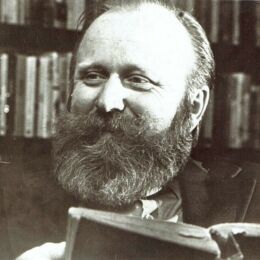
Frank Herbert. Photo courtesy of Wikimedia Commons

Frank Herbert. Photo courtesy of Wikimedia Commons
4,241 words
Frank Herbert’s Dune (1965) is one of the masterpieces of science fiction, far eclipsing its five sequels in readership and reputation. But I wish to argue that the third and fourth Dune books, Children of Dune (1976) and God Emperor of Dune (1981), are equally audacious works of the imagination. [1] Both volumes tend to be underrated, partly due to the long shadow of Dune, partly because the sheer scope of Herbert’s vision boggles the mind, (more…)
-
8,701 words
1. Introduction
In my essay “Heidegger Against the Traditionalists,” I sketched a critique of Guénon and Evola from a Heideggerian perspective. Although I raised several objections to Traditionalism, the crucial one was this: Guénon and Evola are thoroughly (and uncritically) invested in the Western metaphysical tradition. According to Heidegger, however, it is precisely the Western metaphysical tradition that is responsible for all the modern ills decried by the Traditionalists. (more…)
-
Greek version here
1. Introduction
Those on the New Right are bound together partly by shared intellectual interests. Ranking very high indeed on any list of those interests would be the works of Martin Heidegger and those of the Traditionalist [1] school, especially René Guénon and Julius Evola. My own work has been heavily influenced by both Heidegger and Traditionalism. (more…)

